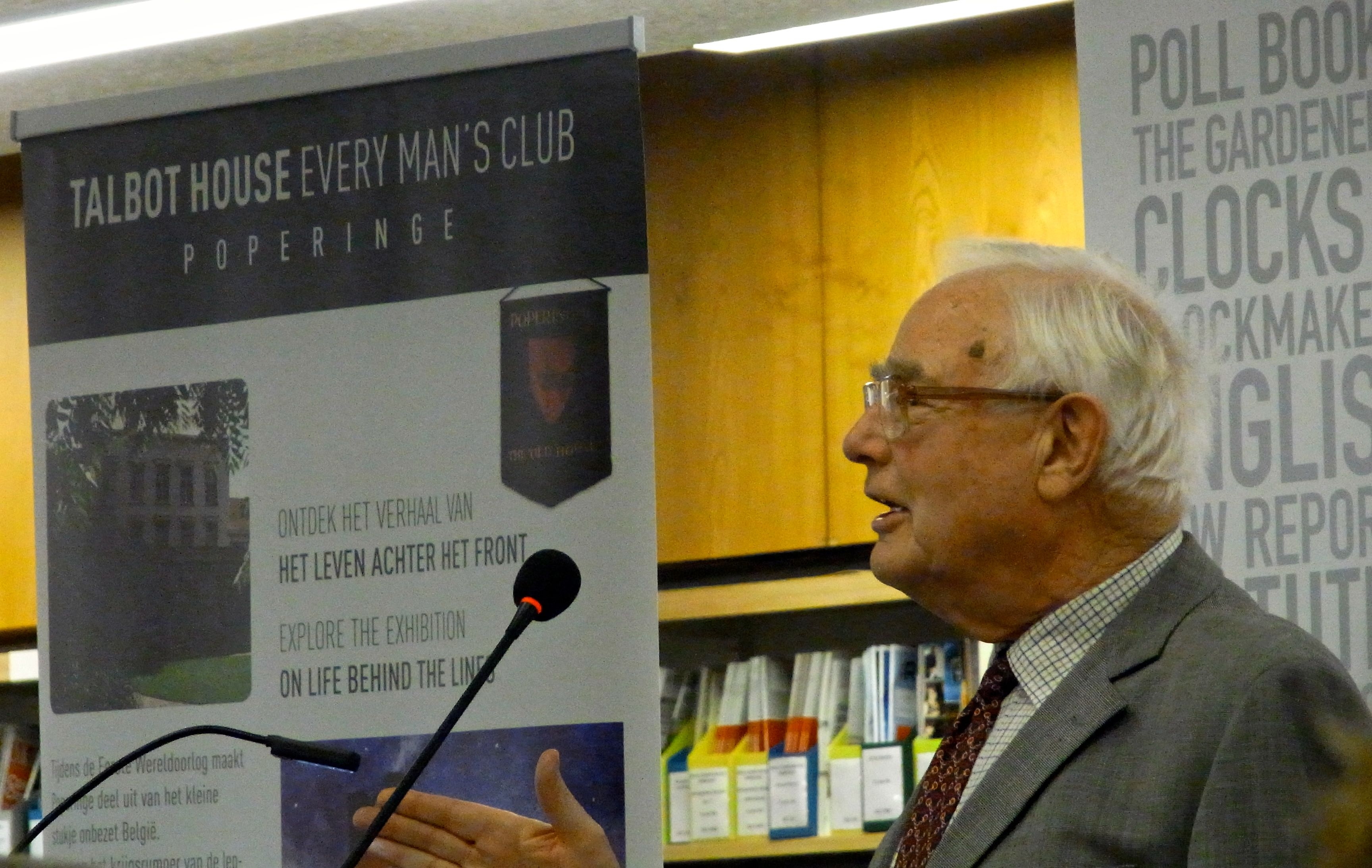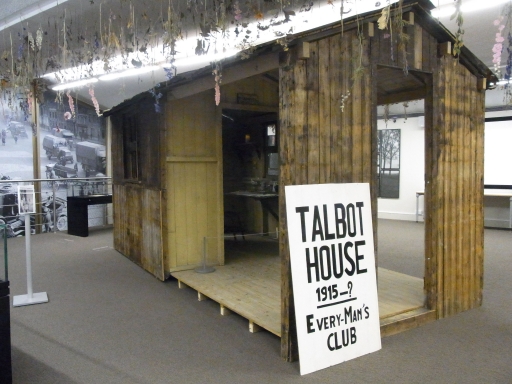The story of Talbot House, the ‘home from home’ created for British soldiers by ‘Tubby’ Clayton behind the lines in Belgium 100 years ago, is told in a new exhibition in London.
A handsome residence in Poperinge was transformed into the ‘Every-Man’s Club’, a place where rank was forgotten and men could forget about the war for a while under the benevolent eye of the Reverend Philip Clayton, always known as Tubby.
The contrast with the violence just a short distance away in the Ypres Salient is summed up in the exhibition’s title: Talbot House: ‘An Oasis in a World Gone Crazy’.
A plain wooden hut forms the centrepiece of this tribute to Tubby Clayton at the City of London’s Guildhall Library.
The Anglican priest first set about writing his memoirs in the hut during the dramatic last months of the Great War when the German advance of spring 1918 forced the evacuation of Poperinge. ‘Tubby resisted for as long as he could before relocating himself and Talbot House,’ the exhibition notes.
Today it belongs to Talbot House, which continues as both a museum and guesthouse in Poperinge. The hut, together with a range of soldiers’ personal effects, has been brought to London for the exhibition.
Also on display is a selection of Tubby Clayton’s letters from the London Metropolitan Archives and Guildhall Library. He had a long association with the City of London after the First World War as Vicar of All Hallows by the Tower, the City’s oldest church.
 Ken Prideaux-Brune shares his memories of Tubby Clayton at the exhibition opening (Photo: Centenary News)
Ken Prideaux-Brune shares his memories of Tubby Clayton at the exhibition opening (Photo: Centenary News)
In 1915, Clayton started as he meant to carry on when his fellow army chaplain, the Reverend Neville Talbot, asked him to help provide recreation for the troops other than the bars and brothels of Poperinge.
The story is told by Ken Prideaux-Brune, who worked closely with Tubby Clayton in the 1950s: “The house had one absolutely unique feature. It was as the signboard outside proclaimed ‘every-man’s club.
“It wasn’t just a club for officers, it wasn’t just a club for other ranks. It was for both. Now that would be pretty remarkable in today’s army. But in the army of 1915, it was totally mind blowing.”
A sign on the door of Tubby Clayton’s own room at Talbot House proclaimed: ‘Abandon rank all ye who enter here.’
“In that room, people met each other simply as fellow human beings, regardless of their rank in the army or their status in civilian life,” Ken Prideaux-Brune explains.
“His ministry of hospitality – he frequently referred to himself as the innkeeper of Talbot House, rather than the chaplain – was a welcome to absolutely everybody. That’s an important message.”
Talbot House: ‘An Oasis in a World Gone Crazy’ runs from October 12th 2015-January 8th 2016 at Guildhall Library, Aldermanbury, London EC2V 7HH.
Talbot House will mark the centenary of its opening with a week of events in December 1915. Tubby Clayton’s legacy also includes Toc H, the charity he founded to perpetuate the spirit of fellowship. ‘Toc H’ was the wartime abbreviation for Talbot House in the British Army’s signalling alphabet.
Posted by: Peter Alhadeff, Centenary News
Images © Centenary News
